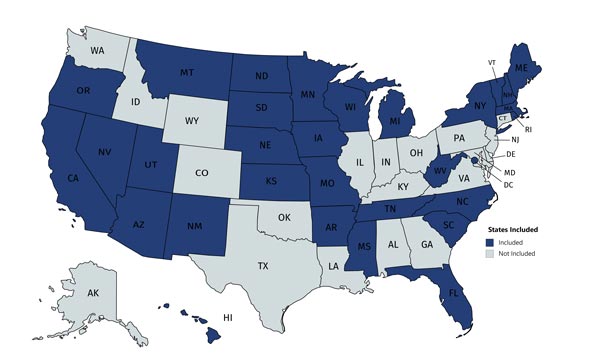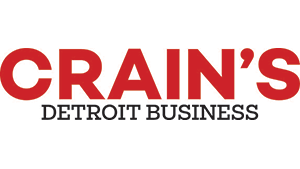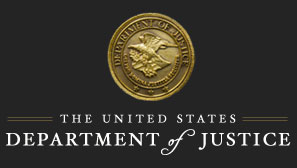Manufacturers Illegally Fix Prices
Years ago a bunch of auto parts manufacturers got together and illegally fixed the price of certain car parts. Because car makers paid too much, they charged you too much. An investigation by the Department of Justice uncovered this scheme, leading to them paying a $1.2 Billion settlement to people who overpaid for their cars. The money is in an account and now it’s time for anyone who got hurt to file for their money back. Find out below if you qualify.
Deadline to file
Time left till filing deadline:
- days
- Hours
- Minutes
- Seconds
Am I Included?
1: New Vehicle?
You must have bought or leased the vehicle new.
2: Included States
The blue states are included

3: Vehicle Included?
Use this form to see if your vehicle is included in the Settlements
*If your vehicle or state is not listed above it's not included in the class action.
Or click here for a list of all vehicles included.
More Info
Objection/Opt-Out Deadline: Passed
Final Fairness Hearing: April 19th, 2017
Claim Filing Deadline: June 18th, 2020
Eligible Class Members: Generally, you may be included if, from 1990 to 2019, you: (1) bought or leased a qualifying new vehicle in the U.S. (not for resale); or (2) bought a qualifying vehicle replacement part (not for resale). Qualifying vehicles include four-wheeled passenger automobiles, cars, light trucks, pickup trucks, crossovers, vans, mini-vans, and sport utility vehicles.
Purchasers or lessees of qualifying new vehicles may be members of the Settlement Classes entitled to monetary recovery. Only those Settlement Class Members who, during the relevant time periods listed above, purchased or leased a vehicle while residing in one of the eligible states will be entitled to share in the monetary recovery. Eligible states include: AZ, AR, CA FL, HI, IA, KS, ME, MA, MI, MN, MS, MO, NE, NV, NH, NM, NY, NC, ND, OR, SC, SD, TN, UT, VT, WV, WI, and the District of Columbia.
Case History: Twenty-three defendant groups and their affiliates (“Settling Defendants”) have agreed to Settlements resolving claims that they fixed the price of certain vehicle components. This may have caused individuals and businesses to pay more for certain new vehicles and replacement parts. These Settling Defendants deny any claims of wrongdoing.
In May 2016, settlements with 11 of the Settling Defendants (“Round 1 Settlements), totaling approximately $225 million, received final Court approval. Additional settlements totaling $379,401,268 have now been reached with 12 additional Settling Defendants. The Settlements, totaling approximately $1.2 Billion, provide money for consumers in 30 states and the District of Columbia as well as non-monetary relief, including cooperation, and agreements by certain Settling Defendants not to engage in certain conduct for a period of 24 months.
In The News

Settlements Top $288 Million in Unprecedented, Ongoing Auto Parts Antitrust Litigation
Read more >>
Denso to pay $255 million in antitrust case settlements to dealerships, consumers
Read more >>
Four more auto-parts suppliers agreed to pay $30 million in consumer settlements —
Read more >>
Two Japanese Auto Parts Companies, U.S. Subsidiaries, and Five Executives Indicted for Rigging Automotive Parts Bids
Read more >>FAQ
What is a class action lawsuit?
A class action lawsuit is a lawsuit filed or defended by an individual or small group on behalf of a large group who have a similar legal claim. Class action lawsuits provide a more efficient method to recover monetary damages because they allow people to join together as a group in a single lawsuit against one or more defendants.
What are these lawsuits about?
The lawsuits claim that the Defendants in each lawsuit agreed to unlawfully raise the price of certain vehicle component parts. As a result, consumers and businesses who purchased or leased qualifying new vehicles (not for resale) containing those parts or who indirectly purchased qualifying replacement parts (not for resale) from the Defendants may have paid more than they should have. Although the Settling Defendants have agreed to settle, they do not agree that they engaged in any wrongdoing or are liable or owe any money or benefits to Plaintiffs. The Court has not yet decided who is right.
Who is included in these settlements?
Generally, you may be included in one or more of the Settlement Classes if, at any time from 1990 to 2019, you: (1) bought or leased a qualifying new vehicle in the U.S. (not for resale), or (2) paid to replace one or more of the qualifying vehicle parts. In general, qualifying vehicles include four-wheeled passenger automobiles, cars, light trucks, pickup trucks, crossovers, vans, mini-vans, and sport utility vehicles.
I’ve purchased a lot of vehicles in this time. How many can I include?
There is no limit as to the number of vehicles you may include on your claim. In fact, a key factor in determining the size of your refund is the number of qualifying vehicles and component parts that you had purchased in this time.
How much money can I get?
At this time, it is unknown how much each Settlement Class member who submits a valid claim will receive. Payments will be based on a number of factors, including at least the number of valid claims filed by all Settlement Class members and the number of (1) qualifying new vehicles purchased or leased or (2) qualifying replacement parts purchased.
What if I no longer have the vehicle?
You may still claim a vehicle even if you no longer have it. You will still need to include all relevant information though.
Where can I find the VIN for my vehicle(s)?
A Vehicle Identification Number (VIN) is an ID that is assigned to every car and is usually 17 characters long. If you still own the car, the easiest way to find your VIN is on the driver’s side interior dashboard. You can also locate it as a sticker on the driver’s side door jamb. If you no longer have the vehicle, check your vehicle’s insurance or title records or contact the dealership where you had purchased the vehicle.
How long until I get my refund?
There are many variables that affect the length of this process. The Final Claim submission deadline is June 18th, 2020 and we should have a better idea of the timeline for these settlements shortly after that.
Who is Refund Advocacy?
Refund Advocacy is a leading third-party class action settlement claims recovery firm. You can learn more about us by clicking on the ‘About’ tab.
What are some of the services that Refund Advocacy provides?
Refund Advocacy prepares and submits our clients’ claims to participate in the recoveries provided by settlement or other resolutions of class actions. Our team also assists in helping you provide any necessary supporting documentation, resolve claims questions from the Claims Administrator, and then reviews the recovery amount to assure the correct compensation has been received. We’ll handle the ins and outs of this process and keep you updated along the way.
Is Refund Advocacy affiliated with Class Counsel or the Claims Administrator?
No. Refund Advocacy is a private class action settlement claims recovery firm.
Does Refund Advocacy provide legal services or advice?
No. Refund Advocacy is not your attorney, does not practice law, and does not provide you with legal representation or advice. If you want legal advice or legal services, you should contact class counsel or an attorney of your choosing.
What is Refund Advocacy’s compensation?
There are no up-front fees or other costs. As detailed in our Authorization Agreement, our fees are an agreed-upon contingent commission which we will only be paid if you receive a recovery.
